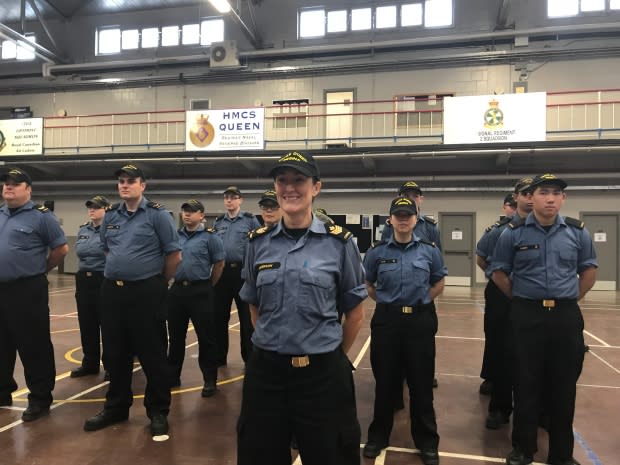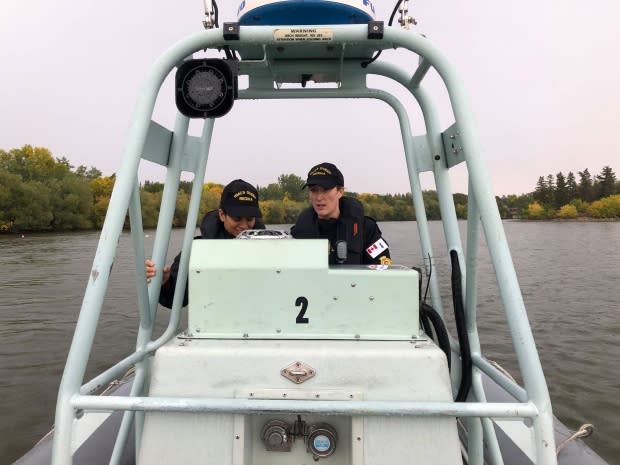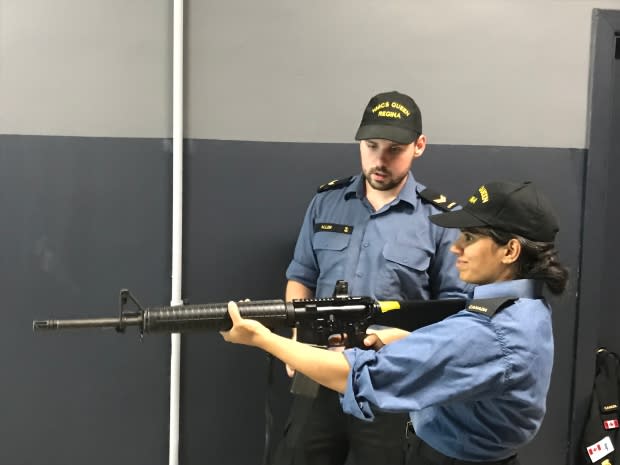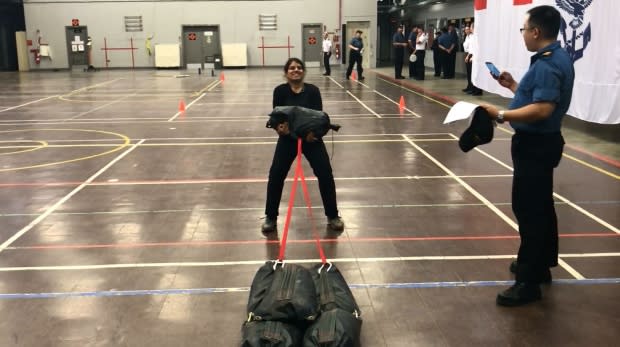The navy Force Test chewed me up and spit me out
I'm on a RIB (rigid inflatable boat) in the middle of Wascana Lake, staring straight down at the water below as the boat tilts at an almost impossible angle — and it's a wild, wild adrenaline rush.
This is part of naval training in a landlocked province, as HMCS Queen in Regina holds its first training day in September.
Our pilot is clearly having a whale of a time, a smile of pure exhilaration as she expertly navigates the water with hairpin turns.

Petty Officer Melissa Anderson joined the navy at the age of 16, wanting a part-time job that was challenging and exciting. Now, she's a registered nurse, but juggles her other roles with an inarguably cool part-time job.
"You get to come to work and do things no one else gets to do," she said, explaining as a boatswain, she often feels like she's in the middle of a movie.
"You do these amazing things to serve [your] country, you shoot weapons and drive boats," she said with a grin.
Over the course of the day, I get a taste of what Anderson's talking about, driving a boat, trying to nail down precision in a marching drill, and even holding a gun for the first time for a shooting simulation.

But there's one hurdle left to joining up: a Force fit test with four challenges I must complete within the set time limits.
"The majority of people pass it," my training partner Lt. Aaron Kaytor assures me. But he adds that it's no walk in the park.
"You'll have to try."
With the encouragement of my teammates, I pass the first three challenges, involving a combination of sprints, jogs and hauling sandbags.
By the end, a trickle of sweat, part nervousness, drips into my eyes. My Olive Oyl arms feel like they've turned to sand themselves.

Our instructor tells us the last test has no time limit.
All we have to do is pull a pile of sandbags across 40 metres, without stopping once. It's a challenge that might be similar to pulling a wounded comrade off a battlefield, he explains.
This looks daunting. I don't want to let my comrade die alone, but at the same time, when it comes to my turn, I'm not sure I can shift the sandbags at all.
Then, I feel the tiniest give, and I start shuffling down the court. First five, then 10 metres, the inches almost impossibly dissolving with each step.

The whole gym is ringing with cheers and claps as I haul my wounded comrade across the distance. It fills me with hope, but a seed of doubt enters my mind.
I don't think I'm going to make it.
My grip slackens. The sandbag in my arms drops to the ground. And in that moment, all the air escapes from my balloon.
Maybe it's the fact that I don't see myself as a military person or that I have a picture in my head of who would join the military, but I find myself drawn to a slight and soft-spoken woman who defies my mental stereotypes.
Xiaoli Zhang was born to a military family in China. After immigrating and settling in Canada in 2006, she eventually began to look for a second job alongside her daytime hours as a graphic designer. She joined the navy two years ago and knew she had made the right choice.

"Once I was standing downstairs with the others, and I heard O Canada," she said. "I was so proud of myself, being military, serving Canada."
On the same day I had my naval training, Zhang was promoted to the rank of acting Sub-Lieutenant. Now, she says she wants to join the military full-time.
It's not just about that feeling of pride, and serving her country, she says, but the people that are right alongside her, the same people who were cheering me on and believing in me even when I didn't believe in myself.
And it seems to me Zhang hits the nail on the head perfectly.
"Before, I knew teamwork, the word. But once you join the military, you will know really the meaning of the word teamwork."

